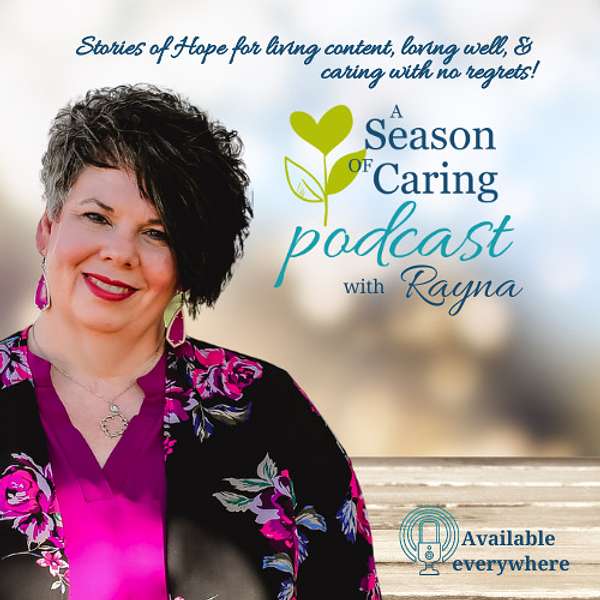
A Season of Caring Podcast
A Season of Caring Podcast is a place to find hope for your Season of Caring. Pointing listeners to the hope they can find in God even in the busyness and loneliness of caregiving. I want you to know that I see you and God sees you. What you are doing is not only difficult, and often overwhelming, but it's also one of the most important and rewarding things you can do.
The guests featured are both everyday family members who are caregiver survivors and those who are still in the middle of their caring season. At times, you will meet professionals who bring their experience and compassion for you to our conversations.
I want you to feel encouraged and hopeful after our time together, so you can spend this season with no regrets, living content, and loving well.
A Season of Caring Podcast
Divine Guidance in Times of Need: Stories of Hope with Carole Leathem
How do you navigate caregiving when your life takes an unexpected turn? Join me, Rayna Neises, as I chat with Carol Leathem, who found herself in this exact situation a decade ago. When her husband, a pastor, faced mental health challenges, Carol stepped into the role of caregiver, redefining her identity and reshaping her life. Our conversation explores these identity shifts and the profound lessons learned through caregiving, not just for her husband but also for her mother, while keeping her own family's needs in balance. For those in similar shoes, Carol's experiences, and her ministry born from these trials, offer a beacon of hope and support.
The journey through mental health and Alzheimer's caregiving is fraught with emotional complexities, and Carol and I share our personal stories to highlight the importance of patience, grace, and empathy. Whether it's dealing with a parent's passive-aggressive text or supporting a spouse through a mental health crisis, understanding that emotions often outweigh facts is crucial. We discuss practical strategies to manage such challenges and stress the importance of crafting personalized coping mechanisms.
Faith becomes a cornerstone in the caregiver's journey, offering solace and guiding us through the most demanding times. We close with an invitation to join a community of caregivers, encouraging listeners to seek professional advice when necessary and to approach their caregiving roles with hope, faith, and a sense of contentment.
.png)